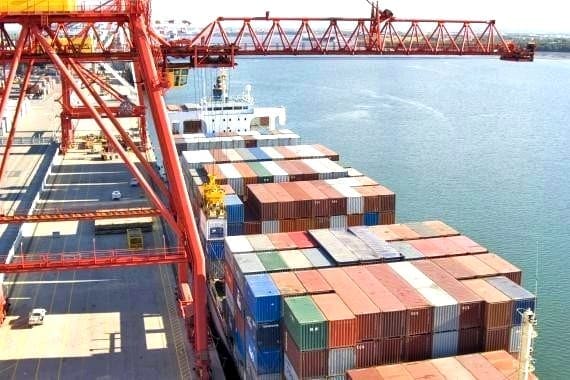U.S. Port Strike to Have ‘Massive’ Impact on Canada: Here’s Why
The impending strike at key U.S. ports is expected to severely disrupt North American supply chains, with economists warning of significant negative consequences for the Canadian economy. Ports from Texas to Maine face shutdowns due to labor disputes, while Montreal’s dockworkers have also initiated a 72-hour strike, intensifying the pressure on trade routes. This strike coincides with ongoing labor actions at Vancouver’s grain ports.
Widespread Labor Action Across North America
Dockworkers at 36 U.S. ports, stretching from Maine to Texas, began striking early Tuesday, demanding fair wages and job protections against automation. The dispute, involving 45,000 members of the International Longshoremen’s Association (ILA), follows the expiration of their contract at midnight.
Workers at the Port of Philadelphia, alongside others, voiced their frustrations, holding signs reading, “Automation Hurts Families,” while chanting for a fair contract. The U.S. Maritime Alliance (USMX), representing the ports, has yet to reach a deal despite ongoing negotiations.
U.S. President Joe Biden has urged the USMX to offer a fair contract, emphasizing the “record profits” achieved by carriers since the pandemic. Biden also vowed to monitor potential “price gouging” by the foreign-owned carriers controlling U.S. shipping.
Montreal Ports Join Strike Amidst Rising Tensions
On the Canadian side, Montreal’s dockworkers initiated a 72-hour strike, effectively shutting down two terminals responsible for handling 40% of the port’s container traffic. The workers, affiliated with the Canadian Union of Public Employees, are pushing for better wages and more predictable schedules. The Maritime Employers Association (MEA) had previously sought to prevent the strike through mediation and emergency hearings, but the action proceeded as planned.
Canadian Economy Faces Risk of Higher Prices
The timing of these strikes is critical as both the U.S. and Canadian economies grapple with the effects of higher interest rates. Recent optimism about inflation being under control could be dashed if these labor actions persist.
Retail analyst Bruce Winder told Global News that a prolonged strike at U.S. ports could have a “massive” impact on Canadian retailers, especially for perishable goods like fruits and vegetables. The automotive and chemical industries, reliant on components from Southeast Asia, would also face severe disruptions.
According to a Moody’s analysis shared with Global News, a U.S. port strike lasting more than two weeks would lead to rising prices and noticeable shortages of manufacturing inputs and retail products. This impact could ripple through the Canadian economy, given the $3.6 billion in goods that cross the U.S.-Canada border daily.
Holiday Shopping Could Face Disruption
While the immediate effects on holiday shopping are expected to be minimal, future reorders for the holiday season, including Black Friday, could face challenges if the strike continues. Business groups are also closely watching potential labor actions in British Columbia, where dockworkers have authorized a strike mandate. A similar strike in 2023 shut down Canada’s largest port for 13 days, costing the economy billions.
The looming port strikes, coupled with past labor disruptions along key North American trade routes, underline the fragility of supply chains and their critical role in maintaining economic stability across the continent.
Source: AP/The Canadian Press
- Wall Street Faces Continued Declines Amid Economic Uncertainty
- Apple Faces Tough Opposition from German Judges in Antitrust Appeal
- Salmonella Outbreak: Over 60 Sick, 17 Hospitalized—Mini Pastries Recalled Across Canada
- Canadian Trade’s Resilience Under Trump: Preparing for Another Term of Challenges


